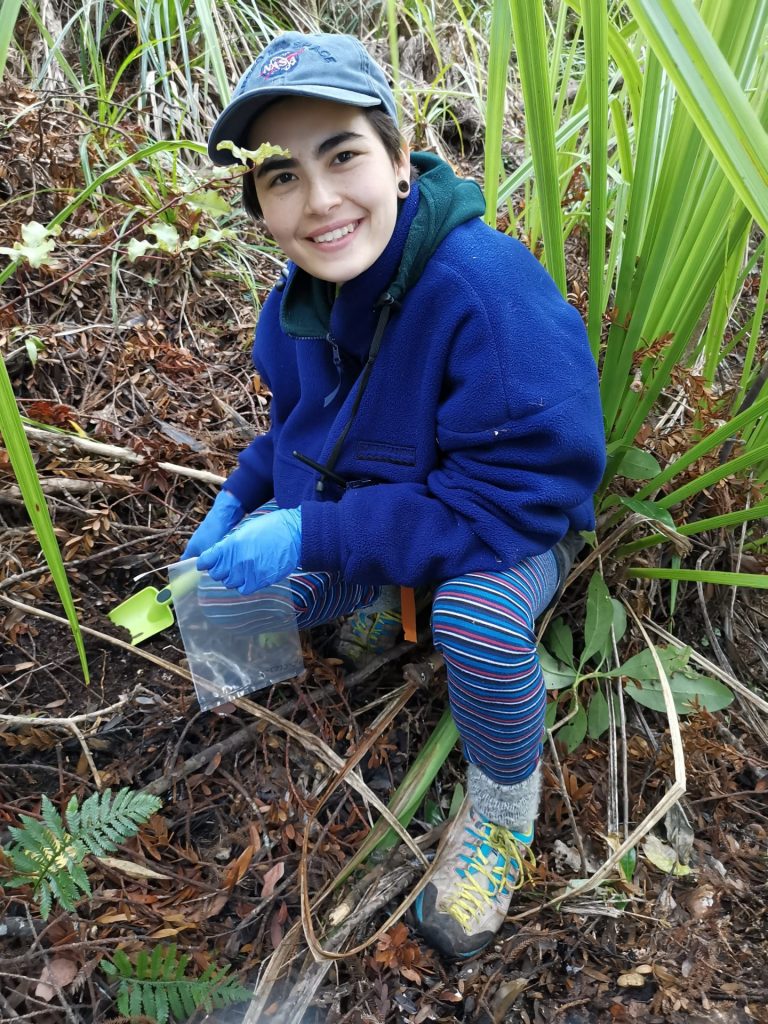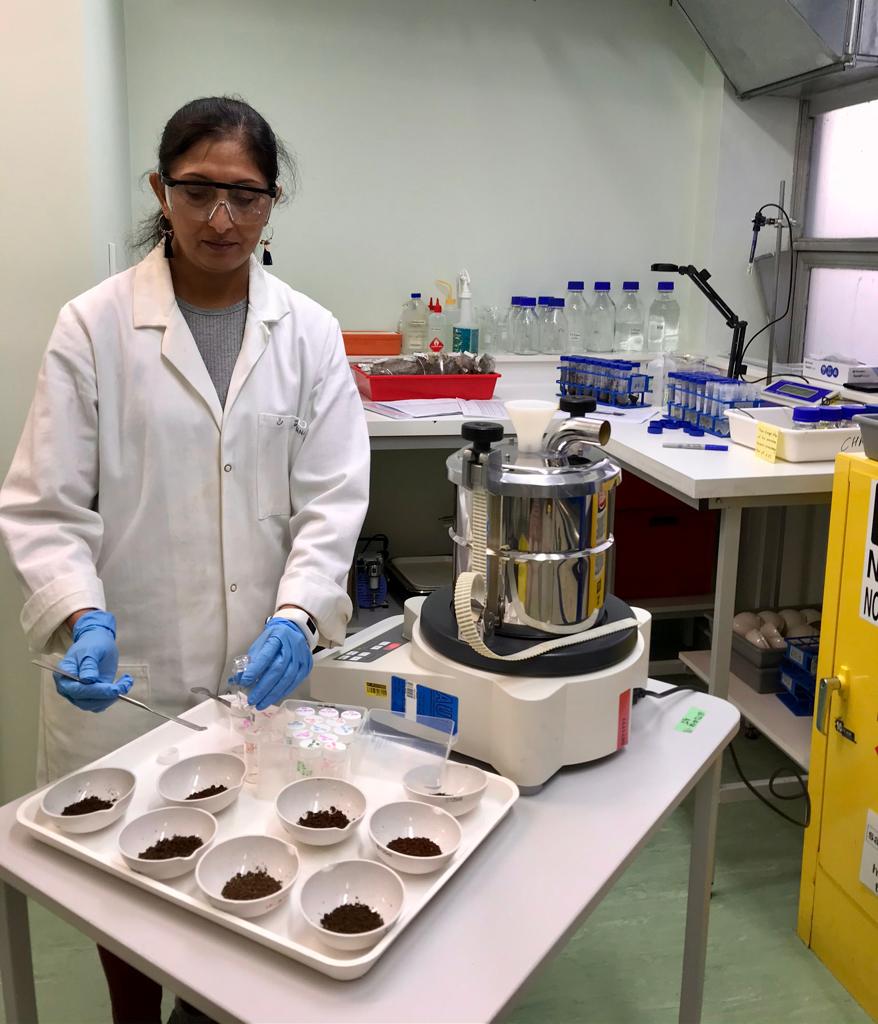Two students giving us the scoop on kauri soil
Two Auckland University of Technology (AUT) students have teamed up to give a comprehensive picture of the biotic and abiotic components of kauri soil.

“We want to get a greater understanding of what is in the soil,” says Zoe King, a PhD candidate. “We assume Phytophthora agathidicida [the organism that causes kauri dieback] will be present in some soil, but we’re not sure what other organisms might be there.”
Zoe and Trupti Mohini (a MPhil student) have recently started research under Theme 3: Risk Assessment & Ecosystem Impacts, and they are being supervised by Assoc Prof Donnabella Lacap-Bugler. Zoe will be identifying the microbial communities present within the soil around kauri trees and Trupti will be identifying the physicochemical properties of the same samples. Then, they will be looking for differences in the microbial and physicochemical profiles between soil gathered from asymptomatic and symptomatic trees.
For Zoe, who completed her Master’s last year on antibiotic resistance, this presents some new and exciting challenges.
“Taking on this project is quite a change of topic and subject area, which is good,” she says.
Trupti, who is returning to academia after 26 years, is facing similar challenges.

“I already have a Master’s degree in microbiology, but I wanted to start again,” says Trupti. “For me, this research is completely new. I’ve never dealt with physical and chemical soil characteristics, and it’s very exciting.”
Zoe and Trupti are working with soil samples that have been collected from 96 trees within the Te Wao Nui a Tiriwa (forested area of Waitākere Ranges Regional Park) with the support of Te Kawerau ā Maki and Auckland Council’s kauri health monitoring programme.
So far, Zoe has done all of her DNA extractions and she has now moved on to library preparation for amplicon and metagenome sequencing to identify individual microbial species within the soil as well as identify the presence of Phytophthora agathidicida.
Trupti will be identifying the physicochemical aspects of these same soil samples as well as several other samples. These additional locations are in coordination with Auckland Council and the Waikato Council.
“I have additional samples from two locations in the Coromandel region as well as one location in the Auckland Botanic Gardens to compare with,” says Trupti.
With Zoe in the first year of her PhD and Trupti having just started her Master’s, it will still be a while before they know if there is a correlation between the microbial and abiotic properties of the soil under asymptomatic vs symptomatic trees. We wish them luck as they charge ahead.
Theme 3 is co-led by Simon Wegner and Luitgard Schwendenmann with Nick Waipara serving as Māori advisor.
Posted June 2022.